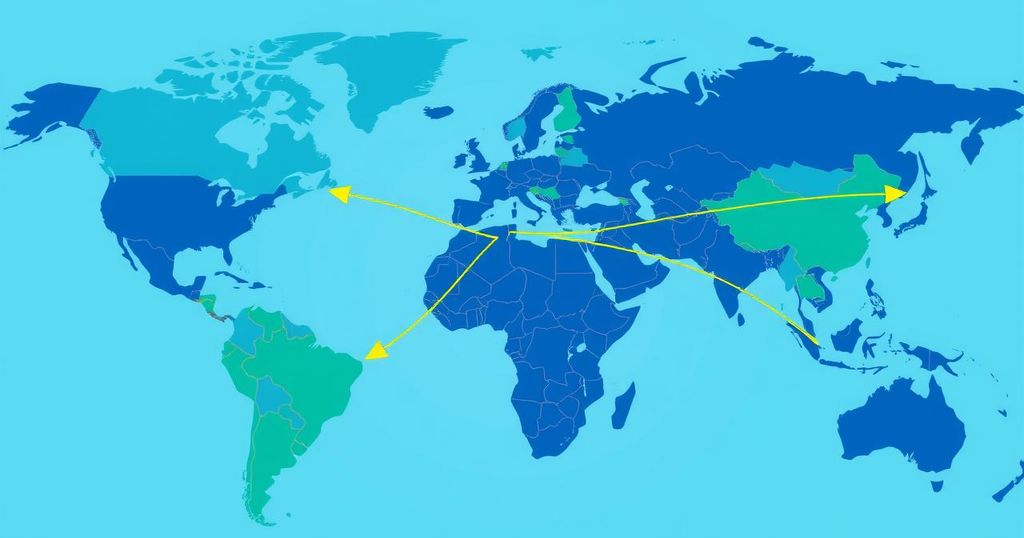Trump’s Tariff Measures on Venezuelan Oil: Implications for Global Trade
U.S. President Donald Trump announced significant tariffs on countries buying Venezuelan oil, particularly impacting China and India. Effective April 2, these tariffs aim to correct trade imbalances and were framed by Trump’s claims regarding Venezuelan hostility and criminal activities. Discussions about the possibility of more targeted tariffs are ongoing as the U.S. government prioritizes addressing unfair trade practices.
On Monday, U.S. President Donald Trump announced substantial tariffs on imports from countries that purchase oil and gas from Venezuela. This decision, affecting nations like China and India, aims to address trade imbalances and has potential implications for global trade relationships. Starting April 2, these tariffs will be levied at a rate of 25 percent as part of a broader strategy to exert economic and diplomatic pressure on various nations.
President Trump has referred to April 2 as “Liberation Day,” pledging that these tariffs will contribute to a course correction in global trade dynamics. He has suggested that adjustments to tariff rates will be made based on the trading practices deemed unfair by the U.S. administration. This is part of a series of tariffs introduced since his return to office, highlighting an aggressive approach towards trade policy.
Trump’s justification for the tariffs on Venezuelan oil is rooted in security concerns, claiming that Venezuela is sending criminals to the United States. He accuses the Venezuelan government of exhibiting hostility towards U.S. values and asserts that this trade restriction is a necessary measure in response to such actions.
In the context of ongoing sanctions, Venezuela had managed to redirect its oil exports to countries like China and India despite the economic restrictions. Trump’s announcement arrives amid a suspension of deportation flights to Venezuela, adding complexity to the U.S.-Venezuela diplomatic relationship. Recent talks have indicated a resumption of deportations, suggesting a shift that could affect this trade scenario.
The proposed tariffs are part of a wider initiative aimed at addressing perceived unfair trade practices globally. Additionally, there is a possibility that subsequent tariffs may focus on specific sectors, although the final scope and implementation remain uncertain as discussions continue within the White House. Market responses have reflected cautious optimism regarding potential narrower tariffs in the near future, though significant tariffs are confirmed for April 2, underscoring Trump’s commitment to altering America’s trade narrative.
In summary, President Trump’s announcement of new tariffs on countries purchasing Venezuelan oil and gas marks a significant escalation in U.S. trade policy. The imposed 25 percent tariffs, effective from April 2, target countries like China and India and are justified by security concerns. The overall strategy aims to address unfair trade practices while potentially setting the stage for more targeted measures in the future. As developments unfold, the implications for global trade dynamics and the affected nations remain of paramount interest.
Original Source: www.hindustantimes.com




Post Comment